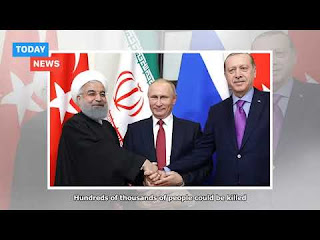Fragility of Middle East alliances becomes ever more apparent

By James M. Dorsey A podcast version of this story is available on Soundcloud , Stitcher , TuneIn and Tumblr . Three recent developments lay bare the fragility of Middle Eastern alliances and a rebalancing of their priorities: the Russian-Turkish compromise on an assault on the rebel-held Syrian region of Idlib , the fate of troubled Abu Dhabi airline Ettihad , and battles over reconstruction of Syria. These developments highlight the fact that competition among Middle Eastern rivals and ultimate power within the region’s various alliances is increasingly as much economic and commercial as it is military and geopolitical. Battles are fought as much on geopolitical fronts as they are on economic and cultural battlefields such as soccer. As a result, the fault lines of various alliances across the greater Middle East, a region that stretches from North Africa to north-western China, are coming to the fore. The cracks may be most apparent in the Russian-Turkis






